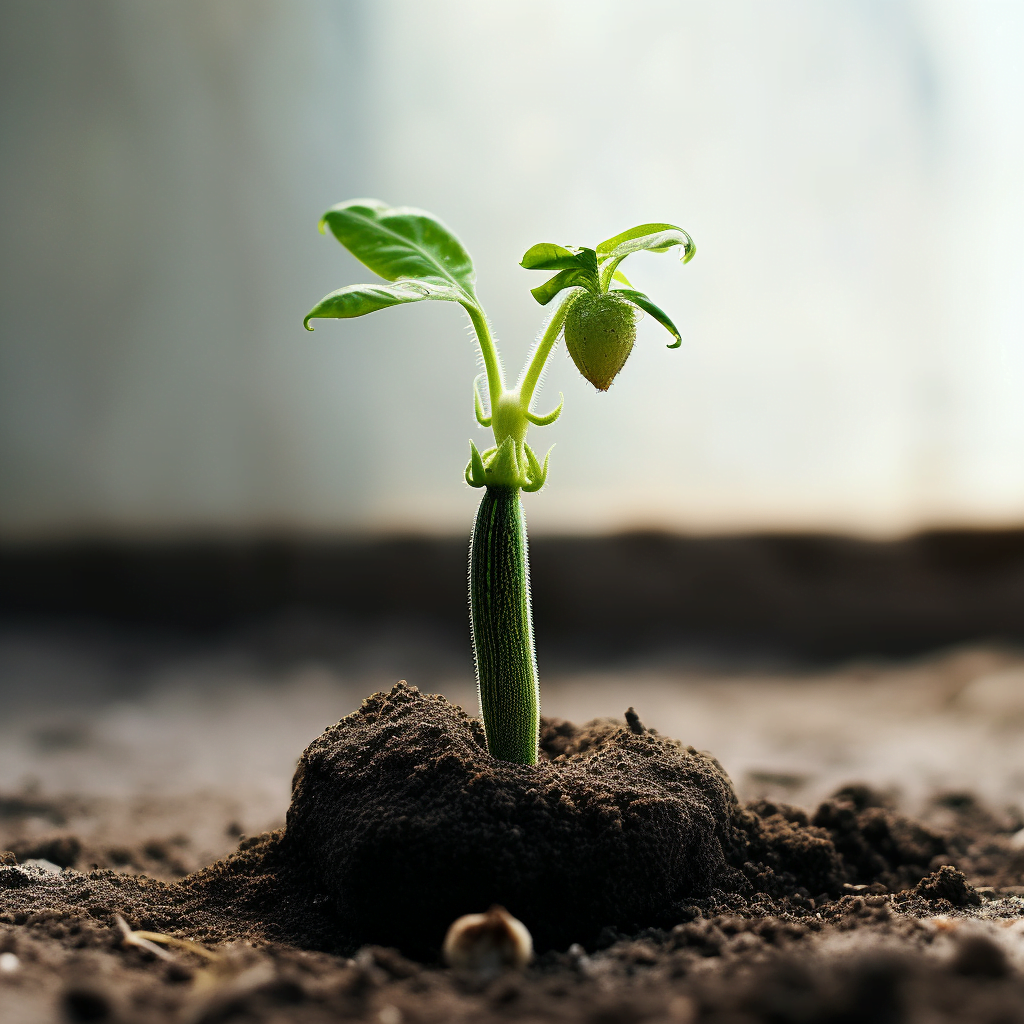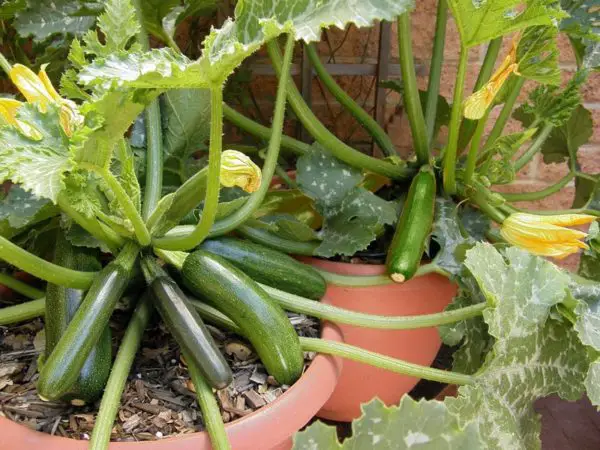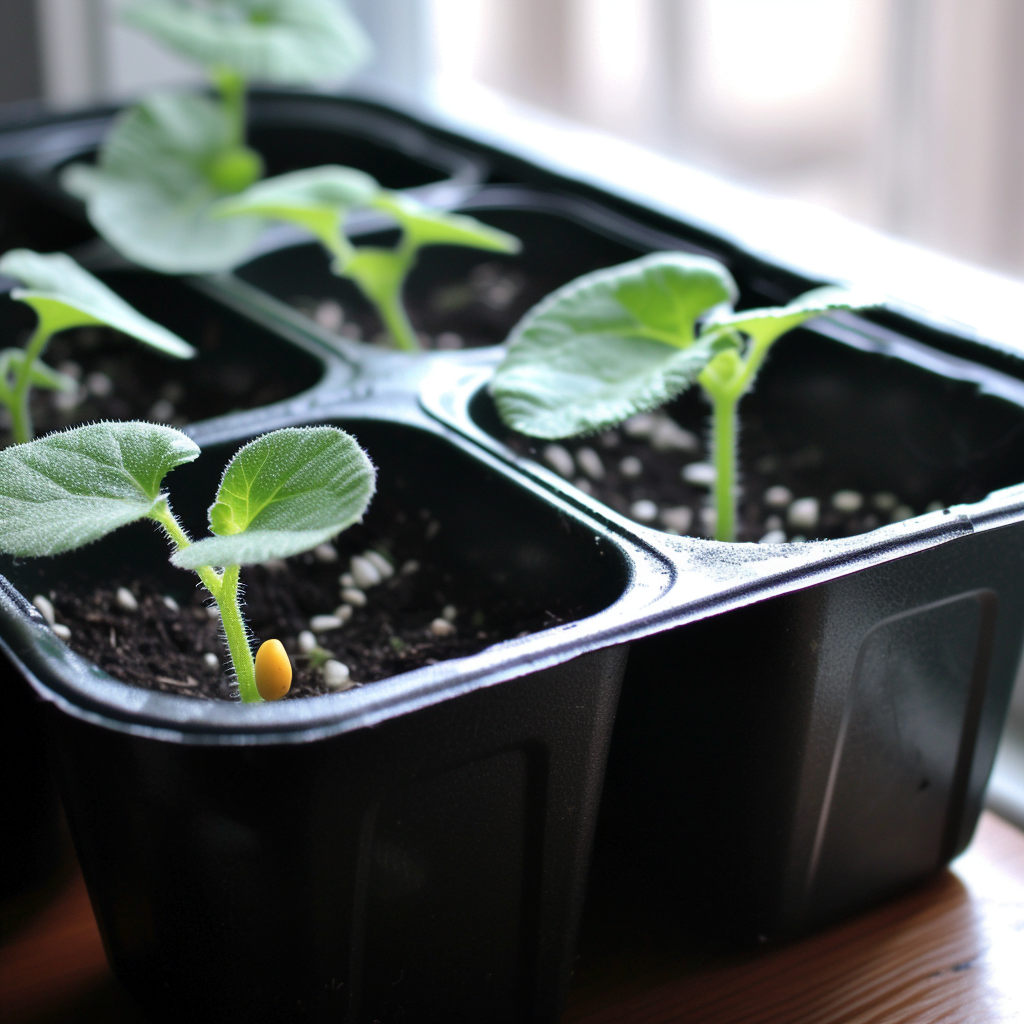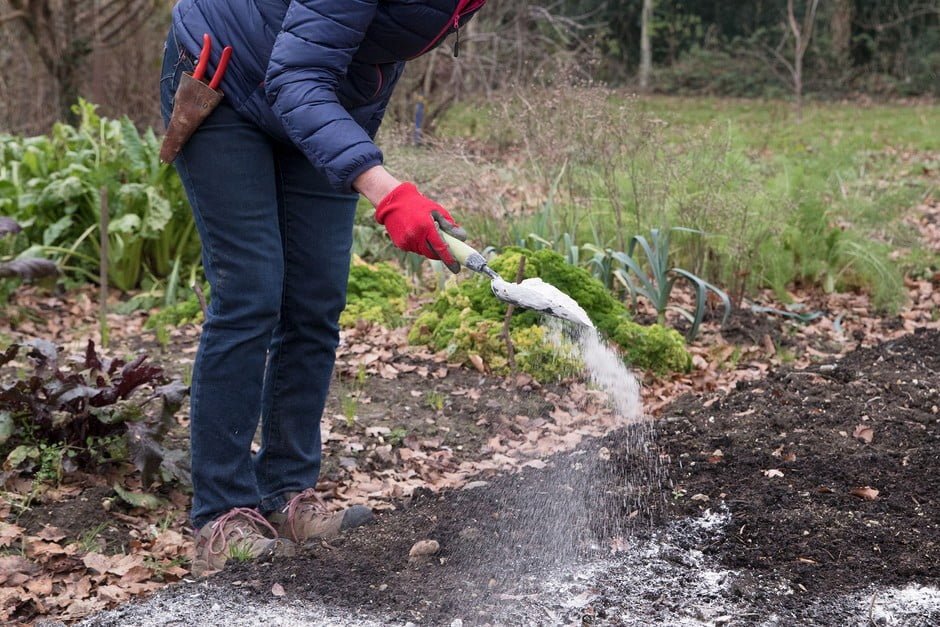In this article, you will explore the complexities surrounding the underwhelming growth of your zucchini plants. With an increasing interest in home gardening, this issue has become a common concern for many aspiring horticulturists. By examining a variety of factors, ranging from soil conditions to pollination, this article aims to shed light on the possible causes behind these disappointing results. By the end, you will gain a deeper understanding of the intricate ecosystem that underlies the phenomenon of zucchini growth and be equipped with valuable insights to optimize the cultivation of this popular vegetable.
Potential Reasons for Small Zucchini Size
Zucchini plants are known for producing large, elongated fruits that are delicious and versatile in the kitchen. However, if you’ve noticed that your zucchini are not growing very big, there could be several potential reasons for this. In this article, we will explore some common factors that may contribute to small zucchini size, including improper pollination, inadequate nutrients, insufficient watering, heat stress, pests and diseases, genetic factors, overcrowding, poor soil quality, inappropriate harvesting, and environmental factors.
1. Improper Pollination
Proper pollination is essential for the successful development of zucchini fruits. Without adequate pollination, the fruits may be small or fail to form altogether. There are a few factors related to pollination that could be contributing to small zucchini size.
Male and Female Flower Ratio
Zucchini plants produce both male and female flowers. The female flowers are the ones that develop into fruits, while the male flowers produce pollen. If there is an imbalance in the ratio of male to female flowers, it can lead to poor pollination and small fruit size. It is important to ensure that there are enough female flowers for the pollen to fertilize.
Lack of Pollinators
Zucchini plants rely on pollinators, such as bees and butterflies, to transfer pollen from the male to the female flowers. If there is a lack of pollinators in your garden, it can result in inadequate pollination and small zucchini. To attract pollinators, consider planting flowers that are known to attract bees and butterflies, such as lavender or sunflowers, near your zucchini plants.
Pollination Techniques
If you suspect that poor pollination is the cause of small zucchini size, you may consider hand pollination as a solution. This involves transferring pollen from the male flowers to the female flowers by using a small brush or cotton swab. Gently brush the inside of the male flower to collect the pollen, then transfer it to the stigma inside the female flower. This can help ensure that the flowers are properly pollinated, leading to larger fruits.
2. Inadequate Nutrients
Nutrients play a vital role in the growth and development of plants, including zucchini. If your zucchini plants are not receiving an adequate supply of nutrients, it can hinder their ability to produce large fruits. There are several specific nutrient deficiencies that can contribute to small zucchini size.
Nitrogen Deficiency
Nitrogen is an essential nutrient for plant growth, as it is involved in the production of proteins and chlorophyll. A nitrogen deficiency in zucchini plants can result in stunted growth and small fruits. If you suspect a nitrogen deficiency, you can remedy it by applying a nitrogen-rich fertilizer or adding organic matter, such as compost, to the soil.
Phosphorus Deficiency
Phosphorus is crucial for root development, flowering, and fruiting in plants. A deficiency in phosphorus can lead to poor fruit set and small zucchini. If your soil is lacking in phosphorus, you can address this by applying a phosphorus-rich fertilizer or adding bone meal to the soil.
Potassium Deficiency
Potassium is necessary for overall plant health, as it aids in water and nutrient uptake, photosynthesis, and disease resistance. A potassium deficiency in zucchini plants can result in weak growth and small fruits. To correct potassium deficiency, you can apply a potassium-rich fertilizer or use organic sources like wood ash.
Micronutrient Deficiency
In addition to the macronutrients mentioned above, zucchini plants also require various micronutrients, such as iron, manganese, and zinc, in trace amounts. A deficiency in any of these micronutrients can negatively impact plant growth and fruit development. If you suspect a micronutrient deficiency, you may consider applying a balanced micronutrient fertilizer or foliar spray to provide the necessary nutrients to your zucchini plants.
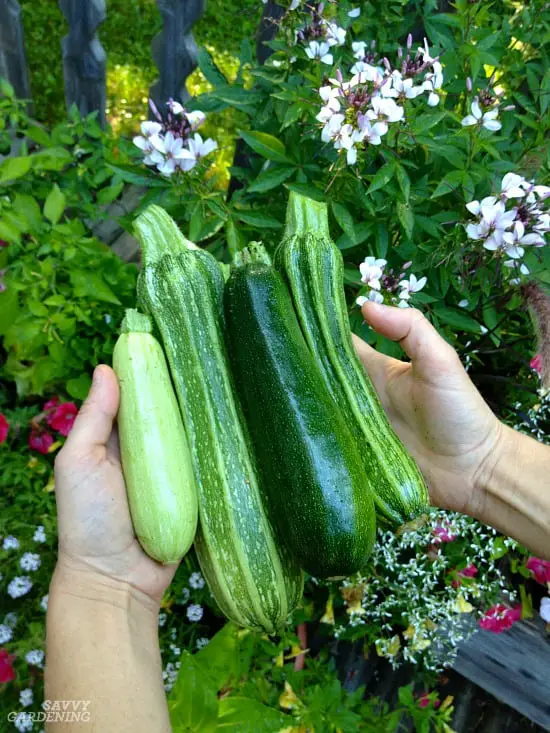
3. Insufficient Watering
Water is a vital component for plant growth and development, and zucchini plants require adequate moisture to produce large fruits. If your zucchini are not receiving enough water, it can result in small fruit size. There are a few factors related to watering that could contribute to this issue.
Frequency of Watering
Zucchini plants prefer consistent moisture levels in the soil, especially during periods of active growth and fruit development. If the soil becomes too dry between waterings, it can stress the plants and hinder fruit growth. Make sure to water your zucchini plants regularly, keeping the soil consistently moist but not waterlogged.
Amount of Water
While it’s important to provide adequate moisture, it’s equally important not to overwater your zucchini plants. Overwatering can lead to root rot and nutrient leaching, which can negatively affect fruit development. Ensure that you are providing enough water to thoroughly moisten the soil without causing excessive pooling or runoff.
Watering Techniques
To ensure that your zucchini plants receive sufficient water, consider using techniques such as drip irrigation or soaker hoses. These methods can deliver water directly to the root zone, minimizing water loss through evaporation and ensuring that the plants get the water they need. Additionally, mulching around the base of your plants can help retain soil moisture and reduce water evaporation.
4. Heat Stress
Zucchini plants thrive in warm weather, but extreme heat can sometimes lead to small fruit size. Heat stress can affect pollination, inhibit fruit set, and reduce overall plant vigor. Here are some factors related to heat stress that may contribute to small zucchini size.
Temperature Extremes
Zucchini plants prefer daytime temperatures between 70 to 90 degrees Fahrenheit (21 to 32 degrees Celsius). If temperatures consistently exceed or fall below this range, it can disrupt the plant’s metabolic processes and hinder fruit development. Protect your plants from excessive heat or cold by providing shade covers or using row covers during extreme weather conditions.
Lack of Shade
If your zucchini plants are exposed to prolonged periods of intense sunlight without any shade, it can contribute to heat stress. Direct sunlight during the hottest part of the day can cause the plants to become dehydrated and reduce their ability to produce large fruits. Consider providing shade to your zucchini plants, especially during the peak hours of sunlight, by using shade cloth or planting them near taller plants that can provide natural shade.
Mulching Strategies
Applying a layer of organic mulch around the base of your zucchini plants can help regulate soil temperature and moisture levels. The mulch acts as an insulating barrier, preventing excessive heat from reaching the plants’ roots and conserving moisture. Use materials such as straw, wood chips, or compost to create a thick layer of mulch, taking care not to place it too close to the plant stems.
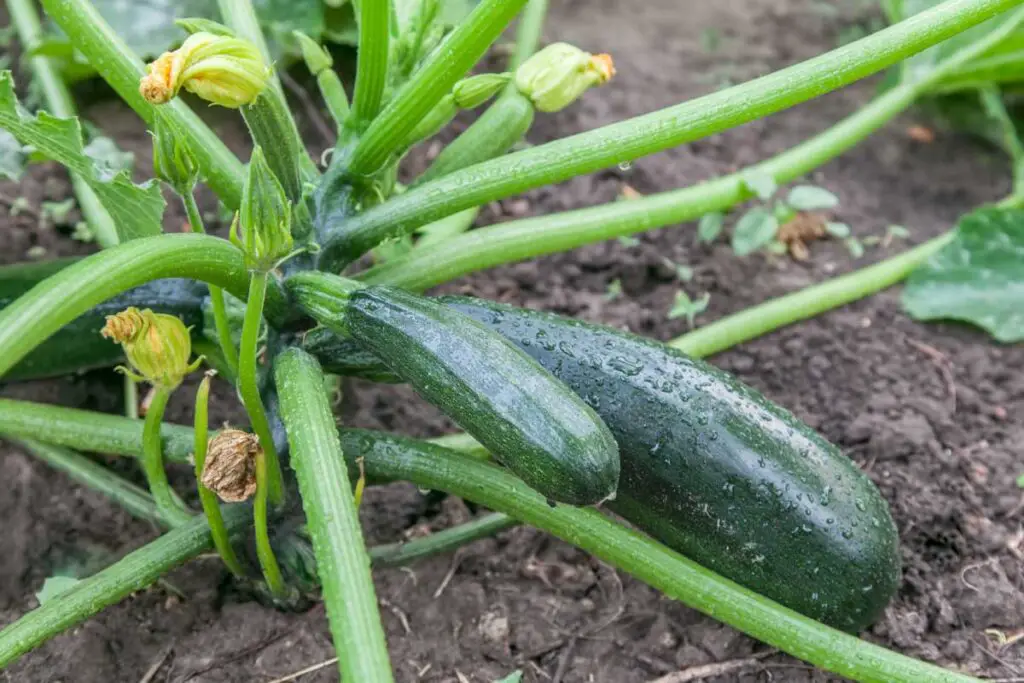
5. Pests and Diseases
The presence of pests and diseases in your zucchini plants can significantly impact their growth and fruit size. Several common pests and diseases can affect zucchini plants, leading to small fruit development.
Common Pests
Pests such as cucumber beetles, squash bugs, and aphids can infest zucchini plants and cause damage to the leaves, stems, and fruits. These pests feed on the plant’s tissues, disrupt its growth, and introduce diseases. Regularly inspect your zucchini plants for signs of pest infestation and promptly take action to control them. This can include using organic pest control methods such as handpicking, insecticidal soap, or introducing beneficial insects like ladybugs or lacewings.
Common Diseases
Zucchini plants are susceptible to diseases such as powdery mildew, downy mildew, and bacterial wilt. These diseases can affect the overall health of the plant, weaken its growth, and reduce fruit size. To prevent diseases, practice good garden hygiene by removing any infected plant material, spacing your plants adequately for good airflow, and avoiding overhead watering. Additionally, consider using disease-resistant varieties and applying organic fungicides or bactericides when necessary.
Prevention and Treatment
To prevent pests and diseases from affecting your zucchini plants, it is crucial to implement proper preventive measures. These include practicing crop rotation, using insect-proof barriers, and maintaining overall garden cleanliness. Monitoring your plants regularly for any signs of pests or diseases can help catch any issues early on and allow for appropriate treatment. If you notice any infestations or disease symptoms, consider using organic pest control methods or consulting with a local horticulture expert for specific treatment recommendations.
6. Genetic Factors
The genetic makeup of zucchini plants can also influence the size of their fruits. Different varieties of zucchini may naturally produce smaller or larger fruits. Understanding and selecting the right variety can make a significant difference in the size of your zucchini.
Variety Selection
When choosing zucchini varieties, consider selecting those that are specifically bred for large fruit production. Some popular varieties known to produce larger zucchinis include ‘Black Beauty,’ ‘Golden Glory,’ and ‘Costata Romanesco.’ Research different varieties and read reviews to find the ones that are known for their ability to produce large fruits.
Hybrid vs. Heirloom
Another factor to consider when selecting zucchini varieties is whether they are hybrid or heirloom. Hybrid varieties are created by crossbreeding different parent plants to produce specific traits, such as disease resistance or higher yields. These hybrids are often bred for uniform fruit size, which may result in larger zucchinis. On the other hand, heirloom varieties are open-pollinated and have been passed down through generations, often known for their unique characteristics and flavors. While heirlooms can produce delicious zucchinis, their fruit size may vary.
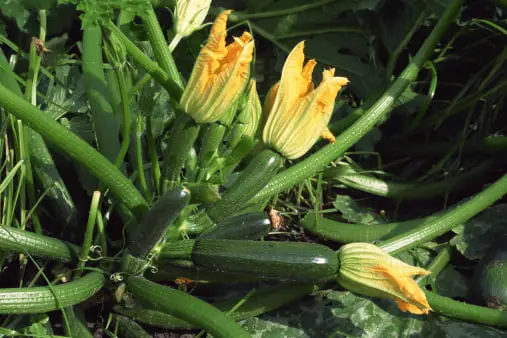
7. Overcrowding
Plant spacing is an important consideration when growing zucchini. If your zucchini plants are overcrowded, they may not have enough space to grow and develop large fruits. Overcrowding can lead to competition for resources such as sunlight, water, and nutrients, resulting in stunted growth and small zucchinis.
Plant Spacing
It is recommended to provide each zucchini plant with ample space to ensure optimal growth and fruit development. For bush varieties, allow a spacing of at least 24 to 36 inches (61 to 91 centimeters) between plants. For vining varieties, a spacing of approximately 3 to 4 feet (0.9 to 1.2 meters) between plants is generally recommended. Proper plant spacing enables each plant to receive adequate sunlight, air circulation, and access to essential resources.
Competition for Resources
When zucchini plants are overcrowded, they compete for vital resources such as water, nutrients, and light. This competition can result in smaller fruits as the plants struggle to obtain sufficient resources for optimum growth. To avoid overcrowding, thin out excessive plants or practice successive planting to stagger the growth and harvest of your zucchini crop.
8. Poor Soil Quality
The quality of the soil in which your zucchini plants are grown can significantly impact their growth and fruit size. If the soil lacks essential nutrients, has imbalanced pH levels, or contains excessive amounts of clay or sand, it can hinder the development of large zucchinis.
Imbalanced pH Levels
Zucchini plants thrive in a slightly acidic to neutral soil pH range of 6.0 to 7.0. If the pH levels of your soil are either too high or too low, it can affect nutrient availability and uptake, leading to poor growth and small fruits. Test your soil periodically with a pH testing kit and amend it accordingly using materials such as lime to raise pH or sulfur to lower pH.
Soil Composition
The composition of your soil, including its texture and structure, can influence the growth and fruiting capacity of your zucchini plants. Zucchinis prefer well-draining soils that retain moisture without becoming waterlogged. If your soil is heavy in clay or sand, it may not provide the ideal conditions for plant growth. Amending the soil with organic matter, such as compost, can improve its structure, nutrient-holding capacity, and water drainage.
Amending the Soil
To improve soil quality, consider incorporating organic matter into your garden beds before planting zucchini. This can include compost, well-rotted manure, or leaf mold. Organic matter helps improve soil fertility, structure, and nutrient availability, which can contribute to the development of larger zucchinis. Additionally, adding organic fertilizers or slow-release granular fertilizers that are specifically formulated for vegetables can provide the necessary nutrients for optimal growth.
10. Environmental Factors
Various environmental factors can influence the size of zucchini fruits, and unfavorable conditions can result in smaller harvests. It’s essential to be aware of these factors and take appropriate measures to mitigate their impact.
Unfavorable Climate
Zucchini plants prefer warm and sunny climates, and extreme weather conditions can inhibit their growth and fruit development. If you live in an area with a short growing season or experience sudden temperature fluctuations, it can affect the size of your zucchinis. Consider using season extenders, such as row covers or greenhouses, to protect your plants and provide a more favorable climate.
Air Pollution
Air pollution can impact plant health and growth, including the development of zucchini fruits. High levels of pollutants, such as ozone or nitrogen dioxide, can interfere with photosynthesis and nutrient uptake, leading to reduced fruit size. If you live in an area with significant air pollution, it may be beneficial to grow zucchini in containers or consider using air purifying devices near your plants.
Excessive Wind
Strong winds can damage zucchini plants and hinder their ability to produce large fruits. Wind can cause physical stress on the plants, break branches, and disrupt pollination. Consider using windbreaks, such as fences or plant barriers, to protect your zucchini plants from strong winds. Additionally, staking or tying up the plants can provide extra support and prevent damage.
In conclusion, several factors can contribute to small zucchini size, including improper pollination, inadequate nutrients, insufficient watering, heat stress, pests and diseases, genetic factors, overcrowding, poor soil quality, inappropriate harvesting, and environmental factors. By understanding these potential reasons and implementing appropriate measures, you can promote optimal growth and enjoy larger zucchini harvests. Remember to consider each factor carefully and address any issues to ensure your zucchini plants thrive and produce bountiful, sizable fruits.
